-By Shlesha Salvi and Poonam Atreya
The world post COVID-19 is no longer the same. Along with several changes, it has added an array of new words to our vocabulary, ‘social distancing’ being among the most prominent ones. For many of us it has brought back the possibilities of life, during the pandemic. But think about a woman, whose job is based on physical intimacy. For whom social distancing means, no means of livelihood as well. She most probably is a single mother, who doesn’t have family or social support system and now, no income either. We are talking about sex workers, who have been among the worst hit victims of the pandemic.
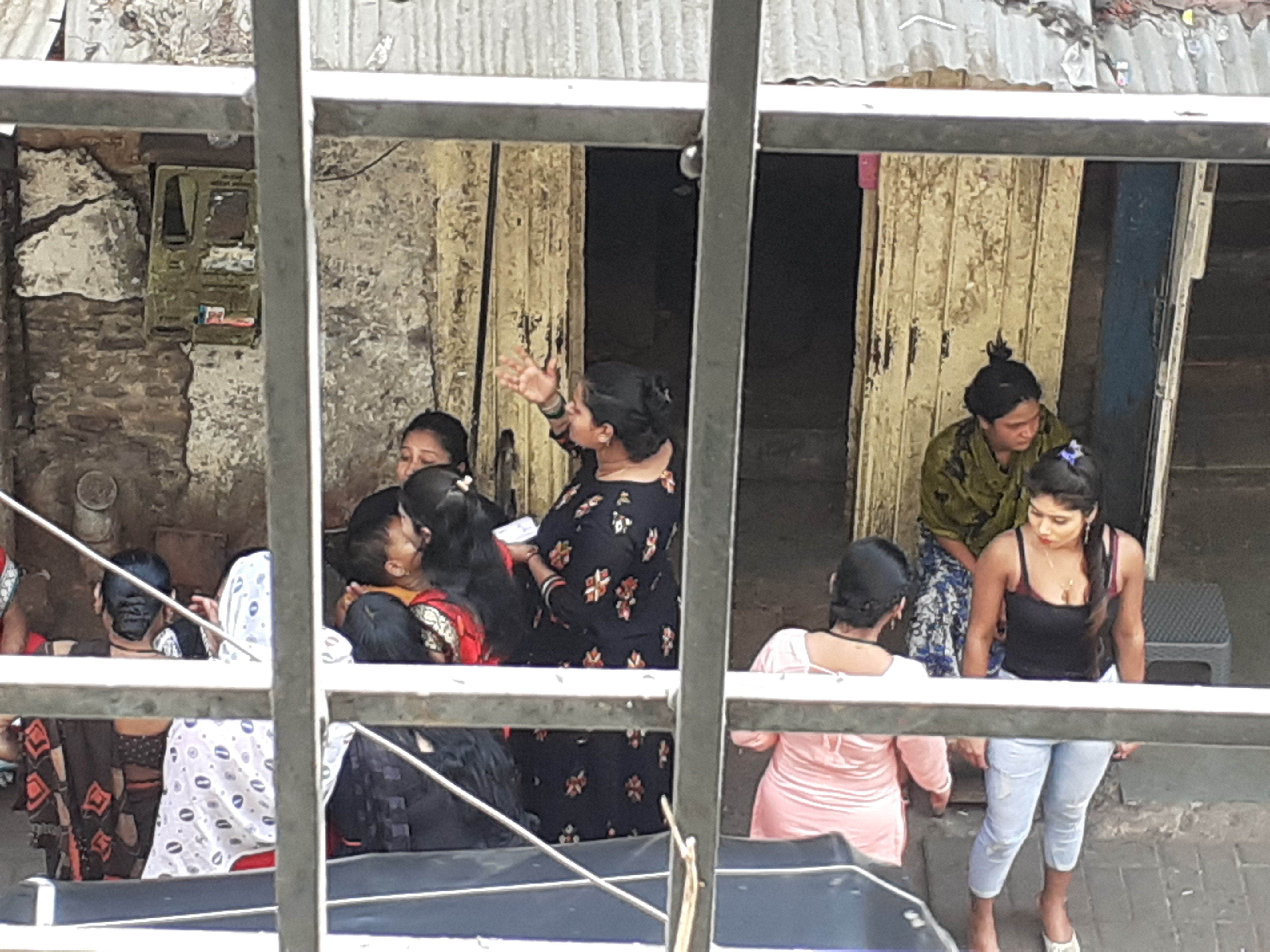
Unlike many other professions, sex workers do not even have the choice to take up some other jobs, because of the stigma attached to their profession. “Will you give me job as your house help, or will you buy food from my stall if you come to know that I am sex worker?” is what Neetu (name changed) asks the society at large.
The colourful by-lanes of Kamathipura and Budhwar Peth once had cheerful laughs, melodious humming all around, the bling, the dancing lights. It is all quiet and dim now. Even the dingy crooked path had the liveliness of children running through them, women with red lipstick and kohl eyes wandering to find a customer. But now, you can only see smeared kajal and frowning pale lips, because of the predicament that every individual in the world is in right now.
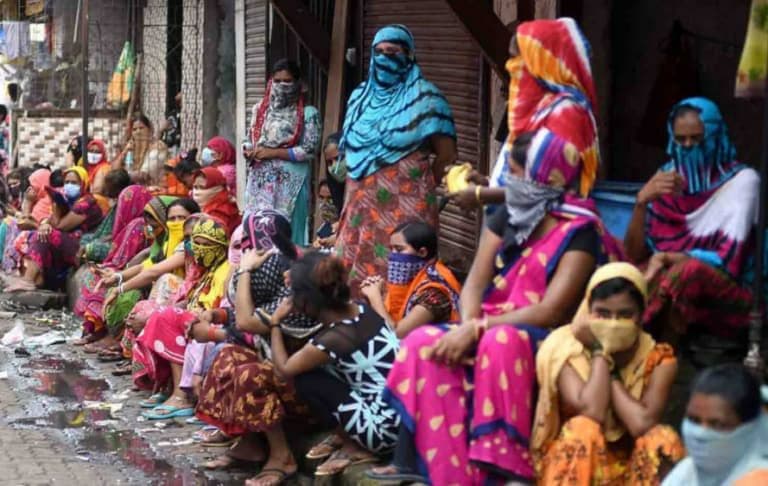
With Covid-19 being a communicable disease and social distance becoming a norm, these women had no option but to shut shop. Desperate to feed themselves and their children they took to streets and protested for aid.
“How will our customers see us, if we mask ourselves?” and “this disease is spread by close contact with people, how are we supposed to entertain our customers?’’ were some of the deepest concerns of Ranju and Rani (name changed) respectively.
On September 29, 2020, the Supreme Court directed all states to provide financial aid and dry ration to sex workers till the pandemic is over. “We are sanctioned Rs. 5000/- per month and Rs.2500/- per month for our children’s online school. We are also promised 3kg of wheat and 2kg rice per month,” said Sunitha (name changed) with some hope in her eyes. There are only 5600 sex workers in Mumbai who are listed in the beneficiaries for this aid. But many who don’t have an Aadhaar card, ration card or a bank account are left out. The situation is similar in other parts of the state as well, where the aid was declared but many sex workers were left high and dry due to lack of mandatory documents.
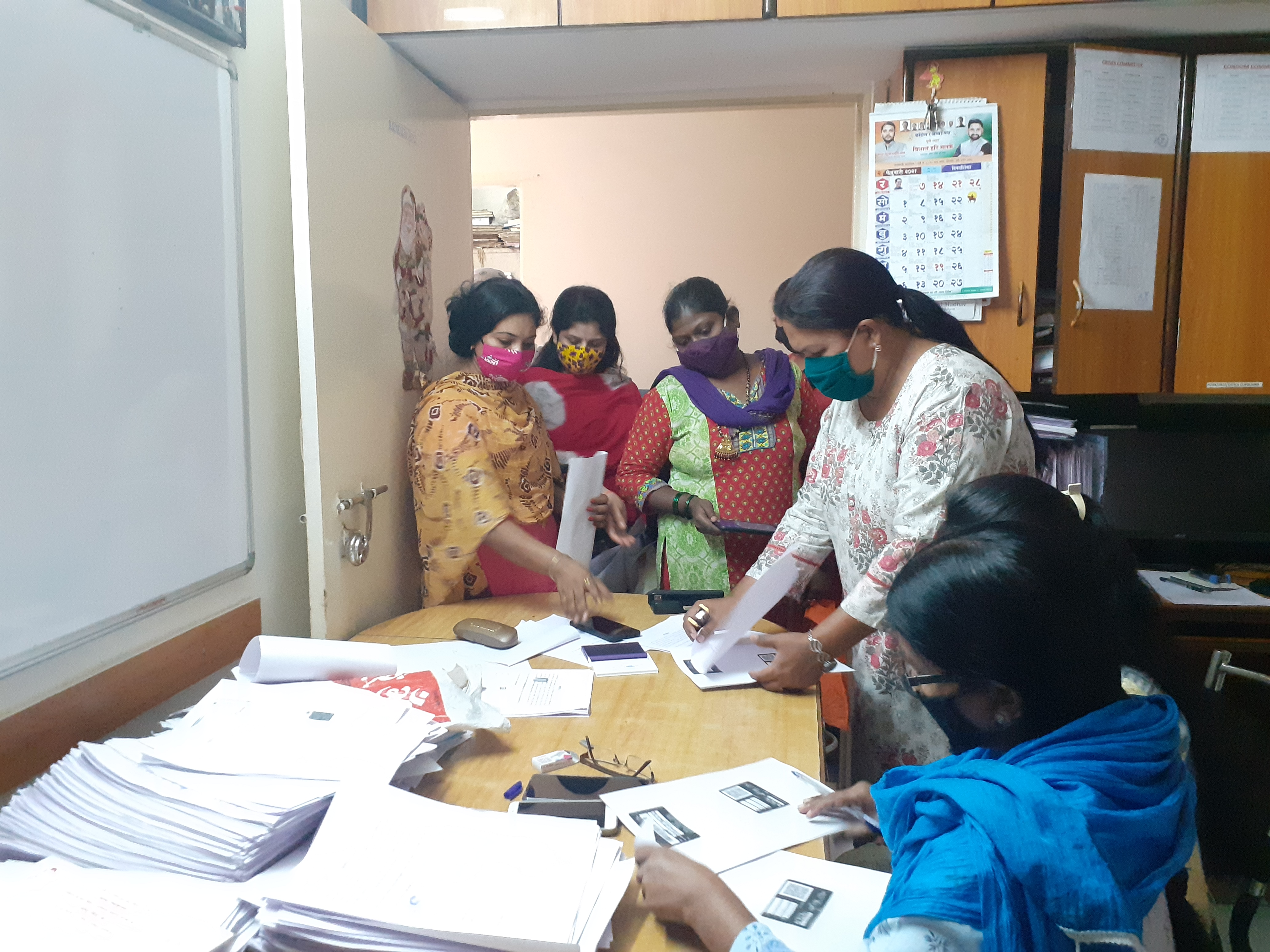
The first wave jolted them. But as the second wave hit the state, these women were shattered. Many are on the verge of a complete breakdown and have started looking for an almost impossible alternative job. “Please look for another job for me. I haven’t received any money due to some document issues. How should I feed my children? It’s difficult to survive here now,” a teary eyed Champa (name changed) said.
Things got even worse for most of these women, when they were asked to vacate by their landlords as they were unable to pay them rent. “I got a call from a lady one night saying that her landlord has thrown her out of the house, we had to settle the matter with the help of police,” said Sarika of Kayakalp NGO. The money received from the government was utilised to pay off their debts to the brothel owners, leaving them with nothing. “They managed some money when the lockdown was relaxed after the first wave, but this is a vulnerable population who will suffer from indebtedness,” said Mrs. Priti Patkar, Prerna NGO, pointing out that debt is the growing concern for these women.
Some NGOs have come forward to lend a helping hand to these women. Prerna is one such NGO working for sex workers in Mumbai since 1986. During the pandemic they, with support of their partners, managed to provide relief kits twice every month in Mumbai’s red light area. “About 80% of them have ration cards or food cards, which help them to get by. We also helped them by mapping the entire Covid system, so they know what measures they have to take,” said Mrs. Priti Patkar.
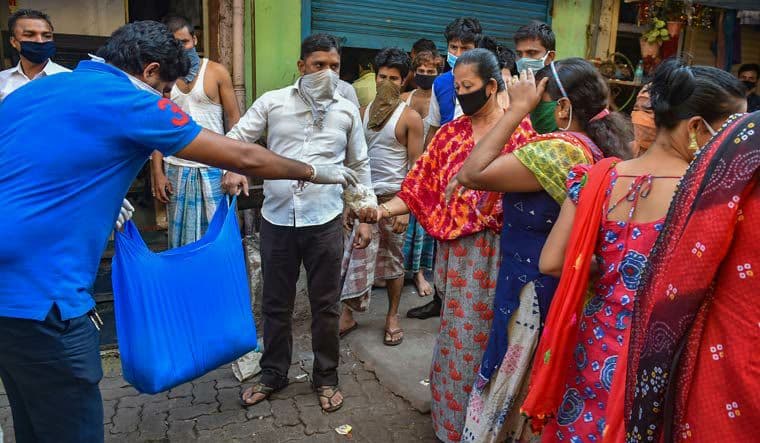
(Image: The Week)
Kayakalp NGO, from Pune has been working for 25 years for healthcare, shelter and education of sex workers and their children. “There were times when we had to procure fresh vegetables and ration given in aid by the government, repack it hygienically and distribute it,” said Sarika from Kayakalp project.
These NGOs have been a major support system for sex workers in Kamathipura and Budhwar Peth. Other professions may get back on track even amidst the pandemic with proper protocol, but these women say they are on an endless wait.
Edited By- Ritu Jhingran Bhoora

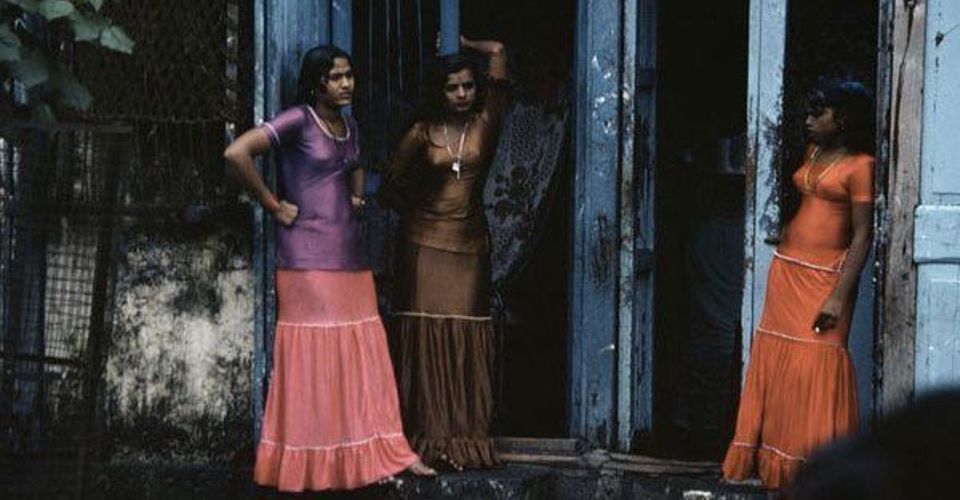
2 Comments
Respected Shlesha Salvi Ji and Poonam Atreya Ji!
Namaskar!
Your work on this extremely bold topic of stigmatized workers of society, for welfare thereof is really appreciable. We can understand how difficult it would have been to contact and listen to THE VOICES of the unshaped and unaccepted female workers belonging to the most ignored sector. After all, a lady can better understand the problems of other ladies. Non disclosures of the original names speaks A lot about your perfectness in the professional field of journalism. A big salute to both of you and to the whole team of The Voices. Congratulations. Keep moving on.
Almighty bless.
Regards
Neel
+91-9418470707
NannuNeeL77@gmail.com
People like me were no doubt thinking about the sufferings of so many poor people,labours, people who lost their jobs during pandemic and many more but never thought of these sex workers ..must admit the article so beautifully is able to bring the true picture of the sex workers, their sufferings amidst the pandemic ,their struggle for livelihood